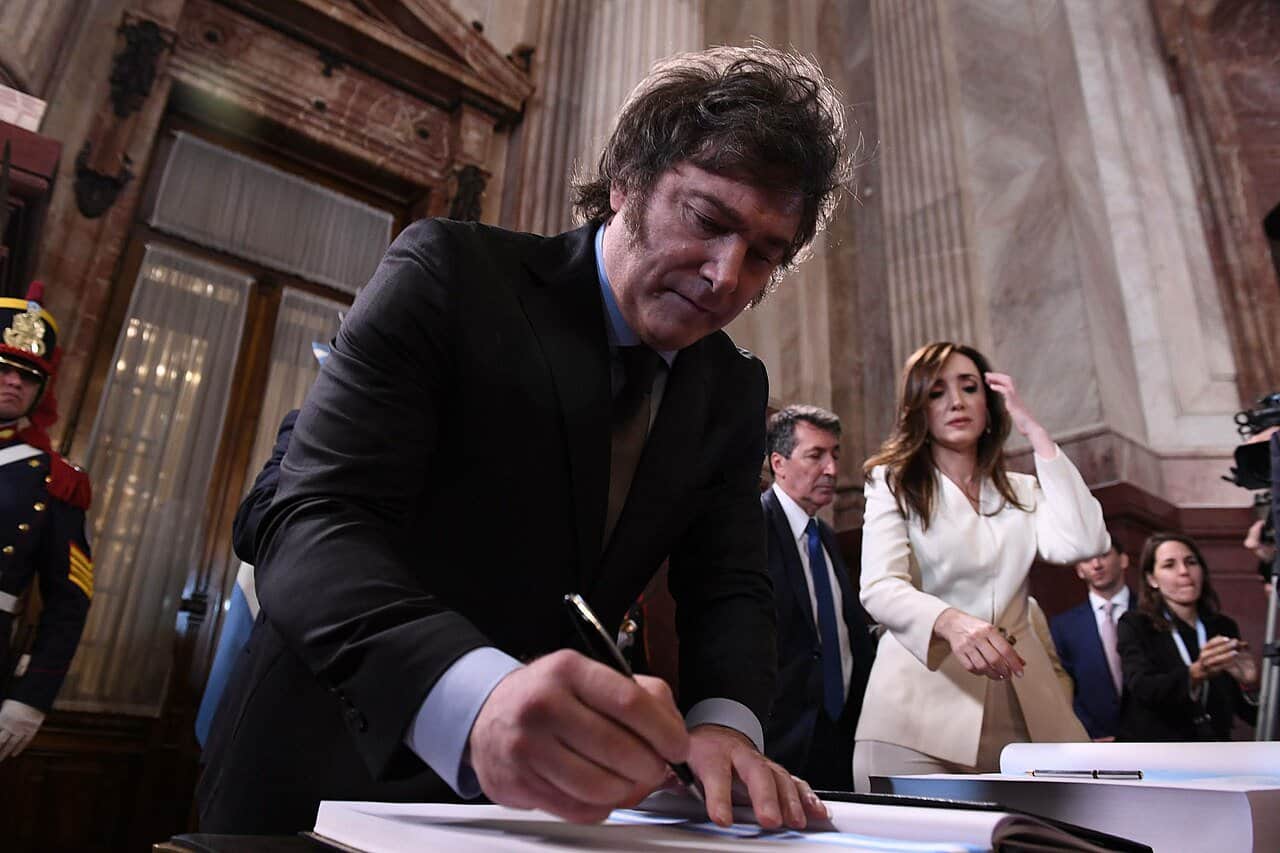New Argentina President Starts Social Experiment
Argentina’s new president, Javier Malei, is fulfilling his campaign promise of immediately making drastic cuts to government spending in order to lower inflation and stabilize the economy. Argentina owes the International Monetary Fund 31 trillion dollars, the most of any nation in the world. In a December 12 press release, the IMF lauded the strict measures of Malei, as presumably, they might help Argentina pay its massive debt.
“IMF staff welcome the measures announced earlier today by Argentina’s new Economy Minister, Luis Caputo,” Julie Kozack, Director of Communications at the International Monetary Fund (IMF), said in the statement. “These bold initial actions aim to significantly improve public finances in a manner that protects the most vulnerable in society.”
Malei did announce an increase in the government-sponsored food assistance by 50%, for those who qualify, but how will his moves affect the rest of society?
Malei has a 61% approval rating currently, as of December 15, even as he is slashing government ministries and spending. However, this will put huge numbers of government employees out of work.
Milei resposted on his X account the measures he took during his first week as president. He cut government ministries and secretariats by half, and lowered the number of government officials by one third. He also completely cut advertising contracts for the government, stating that they were exorbitant.
State workforce and university contracts have been put under review. This is to defeat the thousands of people on the government payroll who never actually work, a standard practice in Latin America. “100% presence began to be required in the National Public Administration,” he retweeted.
“The National State is not going to tender new public works projects for one year,” Milei retweeted. “All public works projects that have been approved but have not yet begun are canceled.” This forfeits another standard practice in the region of doling out government construction projects to political allies.
He also addressed another problem: “The 2 YPF planes used as taxis by former officials were put up for sale,” and “The number of drivers and the fleet of official vehicles are reduced by half.”
President Milei said during his inauguration speech, “I want you to be aware that we are going to begin the reconstruction of Argentina, after more than 100 years of decline, but returning to embrace the ideas of freedom and although we are going to have to endure a period of harshness we will move forward.”
To halt protests that might arise against increased poverty, or the “harshness” that Milei hopes will only be short term, he introduced an anti-picketing protocol, stating those blocking streets will be arrested for delinquency and that those who protest will be removed from state social service plans. Foreigners who protest will be referred to immigration.
Critics already say the Milei administration are economic theorists.
In a 2008 research paper called “The New Government vs. The Windmills: The False Dilemmas of Looking for Growth and Wellbeing,” Milei, then a professor of economics at the University of Buenos Aires, noted:
“The higher the public spending, the lower the competitiveness of the economy and therefore the lower the rate of growth. Thus, under this analytical scheme, when the Central Bank tries to maintain a type of real change above the equilibrium level, if the fiscal policy does not accommodate it, the only thing that will be generated is a continuous increase in the inflation rate, since to pursue the exchange rate goal it will be necessary to constantly devalue the currency, which will feed back into the price increase and end conspiring against the strategy itself.”
He said his own theory would “allow us to propose a new financial policy that not only stimulates higher growth rate, but also, we would move away from the vicious circle of crisis, inflation, stagnation, poverty and inequality. If all this is so obvious and there is so much empirical evidence about it, one should inquire into the reasons for not carrying it out.”
Time will tell if Milei is able to balance the economy and society, or if one will crush the other.
-IP Correspondent

